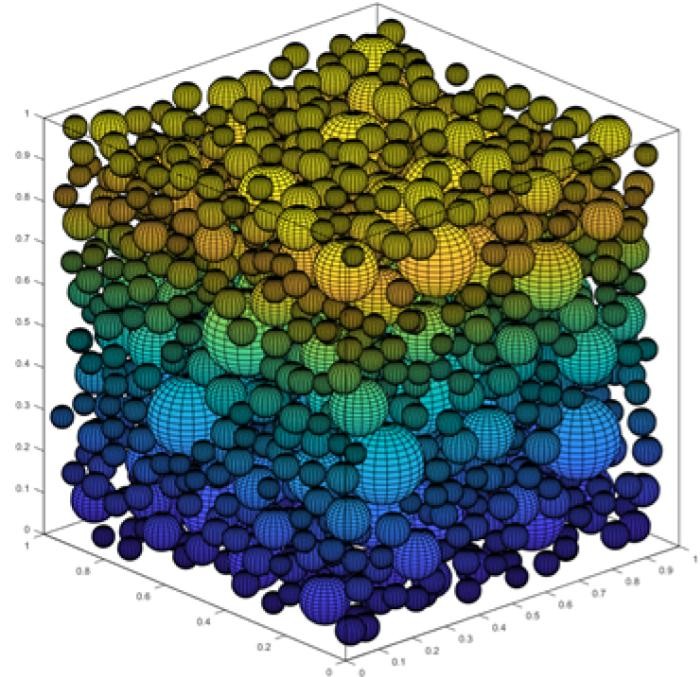
What is Computational and Data-Driven Engineering Mechanics ?
Computational Engineering Mechanics is the intersection of engineering mechanics, applied mathematics and computer science, which is aimed at developing new methods and algorithms for solving computationally-challenging and previously intractable problems in science and engineering.With the advances in computing power, high performance and cloud computing, Computational Engineering Mechanics has become a major component in numerous industries including but not limited to Civil, Mechanical, Biomedical, Automotive and Aerospace Engineering, as it can replace costly and sometimes infeasible experiments with reliable numerical simulations that provide unprecedented efficiency and precision. Furthermore, with the exponential growth of data from sensors and numerical simulations, our goal is to teach students how to leverage the augmented intelligence approach enabled by machine learning to process this data to make better engineering decisions compatible with physics principles. Ranging from atomic scale simulations to kilometer-scale civil engineering operations, simulations and data analytics covered in this program will enable graduates to predict the response of solids and fluids subject to a range of loading and boundary conditions, which are useful for the understanding of complex phenomena, and can lead to safer, more durable, and sustainable engineering designs.
MS in CDEM Program: Students enrolled in this program will be required to take 2 classes, select 6 other classes from a list of available classes, and choose 2 other classes offered in the department of Civil Engineering and Engineering Mechanics or other departments in the School of Engineering and Applied Science. In total 10 classes at the level of 4000-6000 will be required to complete the MS program. In addition, students will be required to attend frequent seminars in the area of Computational and Data-driven Engineering Mechanics.
Required classes (2 classes):
ENME E4332 Finite Element Analysis I
MECE E4520 Data Science for Mechanical Systems
Selected classes (6 classes):
CIEN E4111 Uncertainty and risk in infrastructure systems*
CIEN E4253 Finite Elements and Plasticity in Geotechnical Engineering
ENME E4363 Multiscale Computational Science and Engineering
ENME E6215 Structural Health Monitoring
ENME E6220 Random processes in mechanics
ENME E6320 Computational Poromechanics
ENME E6333 Finite Element Analysis II
ENME E6364 Nonlinear Computational Mechanics
ENME E6370 Turbulence Modeling
ENME E8310 Advance Continuum Mechanics
ENME E8320 Viscoelasticity and plasticity
APMA E4001 Principles of Applied Mathematics
APMA E4300 Computational Math: Introduction to Numerical Methods
APMA E4301 Numerical Methods for Partial Differential Equations
APMA E4302 Methods in Computational Science
APMA E6302 Numerical analysis of partial differential equations
COMS W4121 Computer Systems for Data Science
COMS W4130 Principles and Practice of Parallel Programming
COMS W4771 Machine Learning
COMS W4772 Advanced Machine Learning
COMS W4776 Machine Learning for Data Science
MECE E4520 Data Science for Mechanical Systems
MECE E6102 Computational heat transfer and fluid flow
ECBM E4040 Neural Networks & Deep Learning
*Can be substituted as one of the required courses with approval from the CDEM Committee.
Optional Classes (2 classes):
Independent Research classes with faculty
Other 4000-6000 level classes offered in the CEEM department
Other 4000-6000 level classes offered in SEAS departments
Mandatory seminar for CEDM specialization:
Interdisciplinary Seminar for Computational and Data-driven Engineering Mechanics
Research: Research in Computational and Data-Driven Engineering Mechanics in the department of Civil Engineering and Engineering encompasses a wide range of topics, including, but not limited to:
- Machine learning and data-driven techniques for mechanics problems and identification of complex linear and nonlinear dynamic systems
- Advanced discretization techniques for modeling fracture phenomena of natural or man-made solids subject to a range of loading conditions, e.g. damage and phase field methods, extended finite element methods, and cohesive zone methods.
- Multiscale and multigrid methods in space and time, e.g. homogenization and concurrent approaches, coupling of atomistic/discrete/continuum systems, dimensional-reduction methods with applications to composite materials, energetic materials, concrete, metals, printed materials and geomaterials such as soil, rock and ice.
- Inelastic behavior of materials with applications to metal plasticity, polymers, composites and geomaterials
- Computational fluid dynamics and design of reduced-order formulations for boundary-layer and canopy flows.
- Development and validation of turbulence closure models (large-eddy simulation, Reynolds-averaged Navier-Stokes)
- Inverse optimization and stochastic methods, e.g. shape, topology, material and performance optimization of structures with applications to 3D printed materials, crack detection algorithms, and Bayesian model updating methods
- Statistical pattern recognition and Bayesian inference for damage and performance assessment in dynamic systems
- Uncertainty modeling and propagation in dynamic systems via sparse representations and joint time-frequency analysis tools for addressing high-dimensional and/or incomplete data.
- Stability and material bifurcation of path-dependent solids, e.g. shear banding, brittle and ductile fracture, necking and cataclastic flow.
- Solver techniques and analysis of multi-physics problems, e.g. hydraulic and chemo-driven fracture, crystallization induced damage, impact and blast problems, and fluid-structure interaction.
- Verification, validation and adversarial attacks, e.g. numerical analysis, optimization, error estimation and error analysis, inverse problems that leverage data from micro-CT images, computer vision and other advanced experimental techniques.
- Software development, high-performance and parallel computing including hybrid computing with MPI on GPU/TPU and tensorCores
Droplets have a diameter of 100 , a settling velocity , and fall relatively quickly to the ground. Aerosols have a diameter of 5 , a settling velocity , and can travel long distances carried by the airflow. The renderings in both panels depict a pseudocolor plot of the wind velocity magnitude (black to white) and droplet concentration (transparent<yellow<blue) in a vertical slice through the computational domain shortly after a sneeze event
